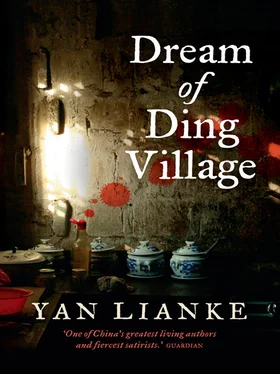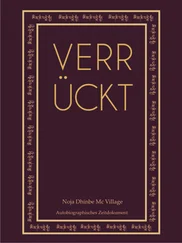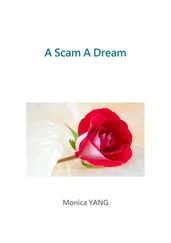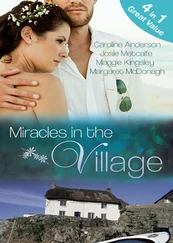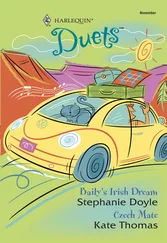They were carrying me away, farther and farther away. Grandpa was now just a blur in the distance. From inside my coffin, I began to scream.
‘Grandpa! Don’t let them take me!’
My cries shook the heavens.
‘I don’t want to leave here! Don’t let them take me!’
My screams ripped holes in the sky.
‘Save me, Grandpa, save me . .
’ The idea struck Grandpa like a thunderclap, draining the colour from his face and making his hands shake. Trembling, he bent down and picked up a stick, a stout piece of chestnut that someone had left lying on the ground. He began walking towards the crowd, following the funeral procession. In a few quick strides, he caught up with my father, who was lagging at the edge of the crowd. Grandpa raised the stick over his head and brought it down on my father’s head, smashing in the back of his skull. The blow fell so quickly that my father didn’t have time to turn around, or to cry out. He swayed for a second, then fell with a soft thud, like a sack of flour.
A puddle of blood bloomed on the ground, as red as a blossom in spring.
After he killed my dad, Grandpa acted like he had done the village a tremendous service. Ignoring my dad’s body lying on the ground, he ran off to spread the good news in the village and to everyone he met along the way.
‘Did you hear? I killed Ding Hui.’
‘Hey, you there! Ding Hui’s dead. I bashed him over the head with a stick.’
‘Hi, just thought I’d let you know. . you don’t have to worry about Ding Hui any more. I killed him.’
As Grandpa raced towards the village, he seemed sprightlier, as if he was suddenly ten years younger. Starting at the west end of the village, he went from house to house opening doors, walking into people’s courtyards and announcing his news.
‘Hi, have you heard?’ he called, pushing open the gate of the first house he came to. ‘I killed my son, Ding Hui. Smashed his head in.’
At the second house: ‘Are your parents home? Well, when they come back, tell them that Ding Hui is dead and that I killed him. I bashed him in the back of the head with a stick of chestnut, this long and this thick.’ Grandpa illustrated his words with a gesture. ‘Killed him with the first blow.’
At the third house: ‘So you’re back here, visiting? That’s just as well. You can burn offerings at your brother and parents’ graves and tell them that Ding Hui is finally dead. I killed him with one blow to the skull.’
At the seventh house he came to, Grandpa walked into the courtyard and saw that all the rooms were shuttered and locked. There were weathered funeral scrolls pasted to the lintels of every door. He knelt in the middle of the courtyard, clasped his hands together and bowed three times. Then, although there was no one alive to hear his announcement, he said: ‘Brothers, you brothers and your wives, I came to give you some good news. My son Ding Hui is dead, and I killed him.’
When Grandpa arrived at Jia Genzhu’s house and saw the black coffin in the courtyard, he fell to his knees and touched his head to the ground. ‘Genzhu, you were always like a nephew to me. I wanted to tell you the good news in person, and I hope you’ll rest easier knowing that Ding Hui is dead. I killed him myself, bashed his head in with a stick.’
Later, Grandpa knelt in front of a cluster of new graves outside the village gate and cried: ‘Listen, everyone. . I’ve got some good news! Today I killed Ding Hui, my first-born son. I came up behind him and bashed his brains in. Ding Hui is dead. .’
VOLUME 8

Summer was over, and autumn was here again.
Summer had passed without a drop of rain. Now it was midway through autumn, and there hadn’t been a rainstorm for more than six months. The dry spell had lasted for 180 days. It was the worst drought seen on this plain in nearly a century. All the grasses and crops had died.
The trees were gone, too. Unable to resist the drought, the paulownia, scholar trees, chinaberries, elms, toons and rare honey locusts quietly passed away.
The big trees had all been chopped down, and the smaller ones had been lost to drought. There were no more trees.
Ponds congealed. Rivers stopped. Wells ran dry.
When the water disappeared, so did the mosquitoes.
Cicadas shed their skin and left before it was time. Their golden yellow corpses littered the trunks, branches and forks of dead trees, and clung to the shady side of walls and fences.
But the sun survived. The wind lived on. The sun and moon, stars and planets were alive and well.
A few days after my father’s funeral, they came to arrest Grandpa. He was a murderer, a man who had murdered his son, so they had to take him away. Three months after his arrest, in the second month of autumn, it rained for seven days and seven nights without stopping. And when the rain was over, they let my grandpa go. It was like the rain had been his salvation. They took him away at the height of the drought, when all the grasses and trees were dying, and asked him a lot of questions. They asked him about Ding Village and blood-selling and coffins and matchmaking the dead. When he had answered all their questions and the rains had ended, when the wells and ponds and rivers and ditches were no longer dry, they let him go.
They sent him home and spared his life.
When Grandpa came back to Ding Village, it was already late autumn. The dusk of a late-autumn day. The sun above the plain was a blood-red ball, making red of the earth and sky. Laughing on the horizon, cackling from the western plain. All across the silent land, there were sounds of life. Chirps and squeaks and tiny insect sounds. Normally, at this time of year, the trees would be shedding their leaves, but most of the trees were gone. The grass had all but been killed off. Almost, but not quite. In the fields and in the spaces in between, along the sand dunes of the ancient Yellow River path, there were spots of green, pale-green patches of something still alive. Mingled with the autumn’s rotting grass was a smell as fresh as spring. The scent of something new and clean.
Against the bright red sky, an occasional bird took flight. Crows and sparrows; an eagle. Their shadows flitted across the ground like wisps of smoke.
It was to this that Grandpa had returned.
He hadn’t changed much. Grandpa was as thin as ever, and his face was pale, ashen grey. Wearing an old straw hat and carrying his bedroll, he looked like a traveller returning home after a long journey. What struck him first about Ding Village was the silence, the intensity of the silence. In the three months that he had been gone, in those 100 days from mid-summer to mid-autumn, Ding Village had become a different place.
No, it was still the same place, but all the people were gone. The streets were as silent as death, empty of man or beast. There were no chickens, pigs, ducks, cats or dogs. Now and then, the call of a sparrow shattered the quiet, like a stone hurled through a pane of glass. Grandpa met only one living thing, a stray dog so skinny you could see its ribs. It came out of Zhao Qiuqin’s gate and stood in the middle of the road, staring at Grandpa. Then, without barking, it slunk away with its tail between its legs.
Grandpa stood in the centre of the village, gazing around him in confusion, wondering if he’d taken a wrong turn. Then he saw a structure he recognized: a decrepit cowshed. It hadn’t changed much since he’d last seen it; it was still on the verge of collapse. A fallen rafter lay atop its crumbling brick walls like a chopstick resting on the cracked rim of a bowl.
Читать дальше
